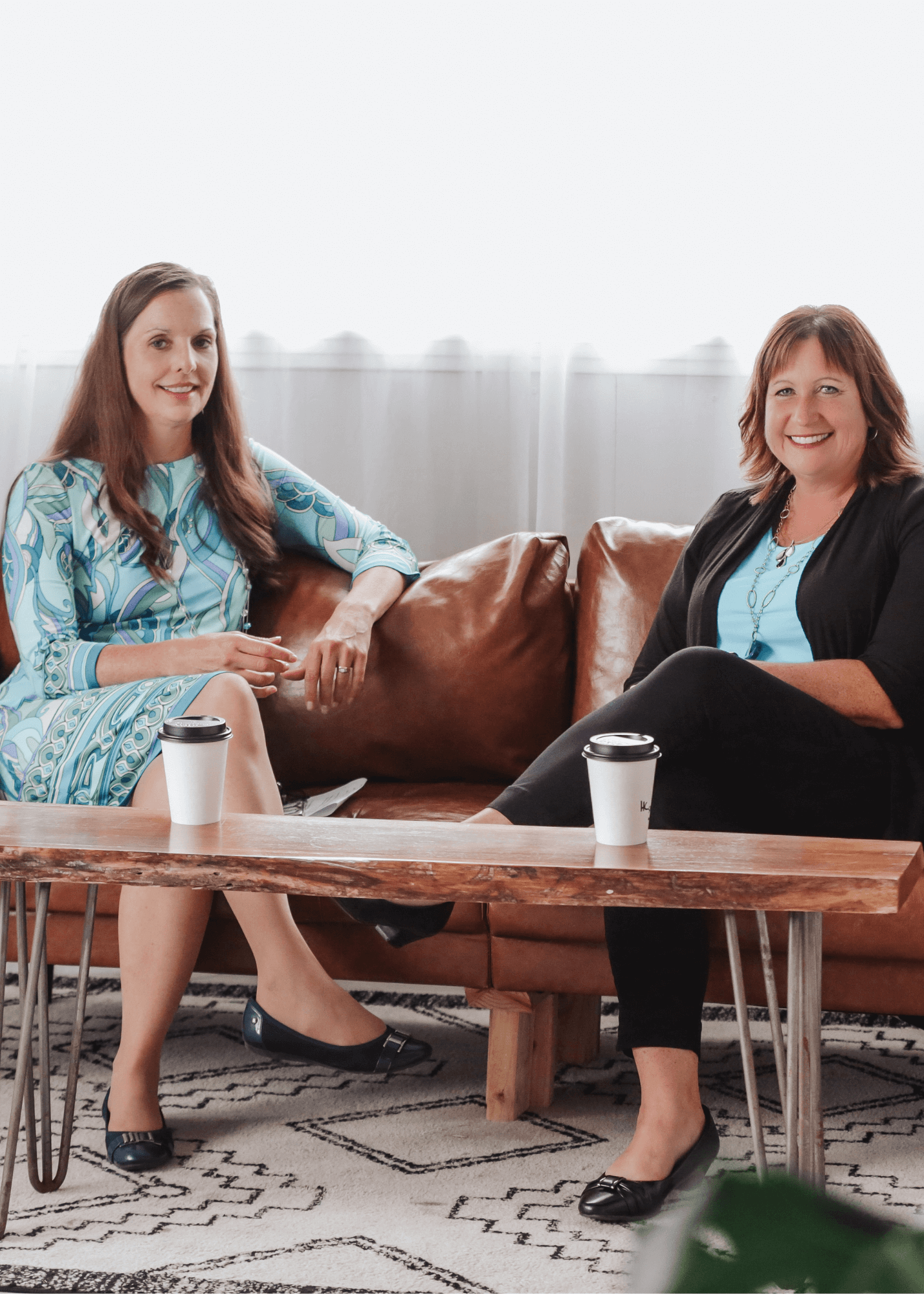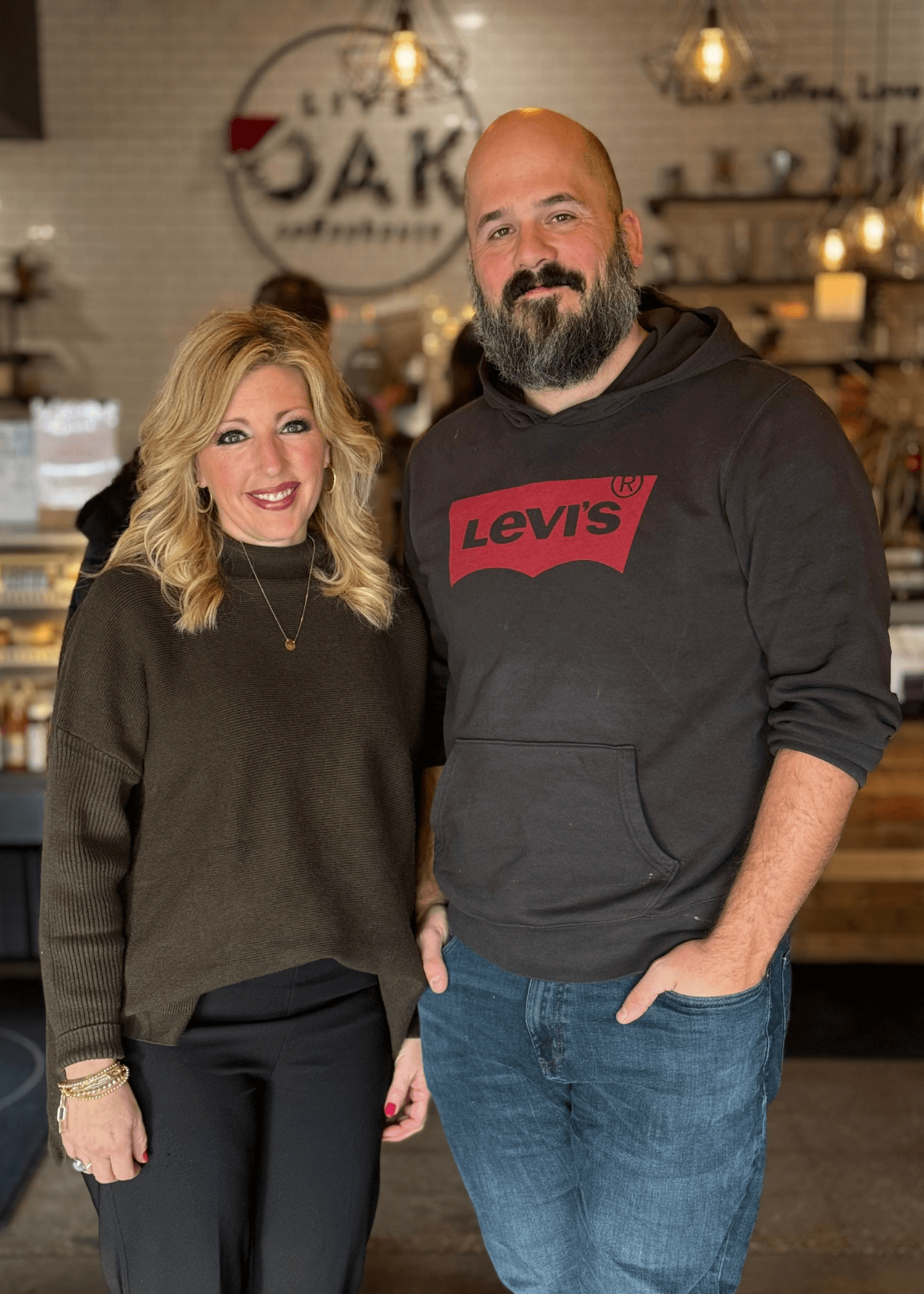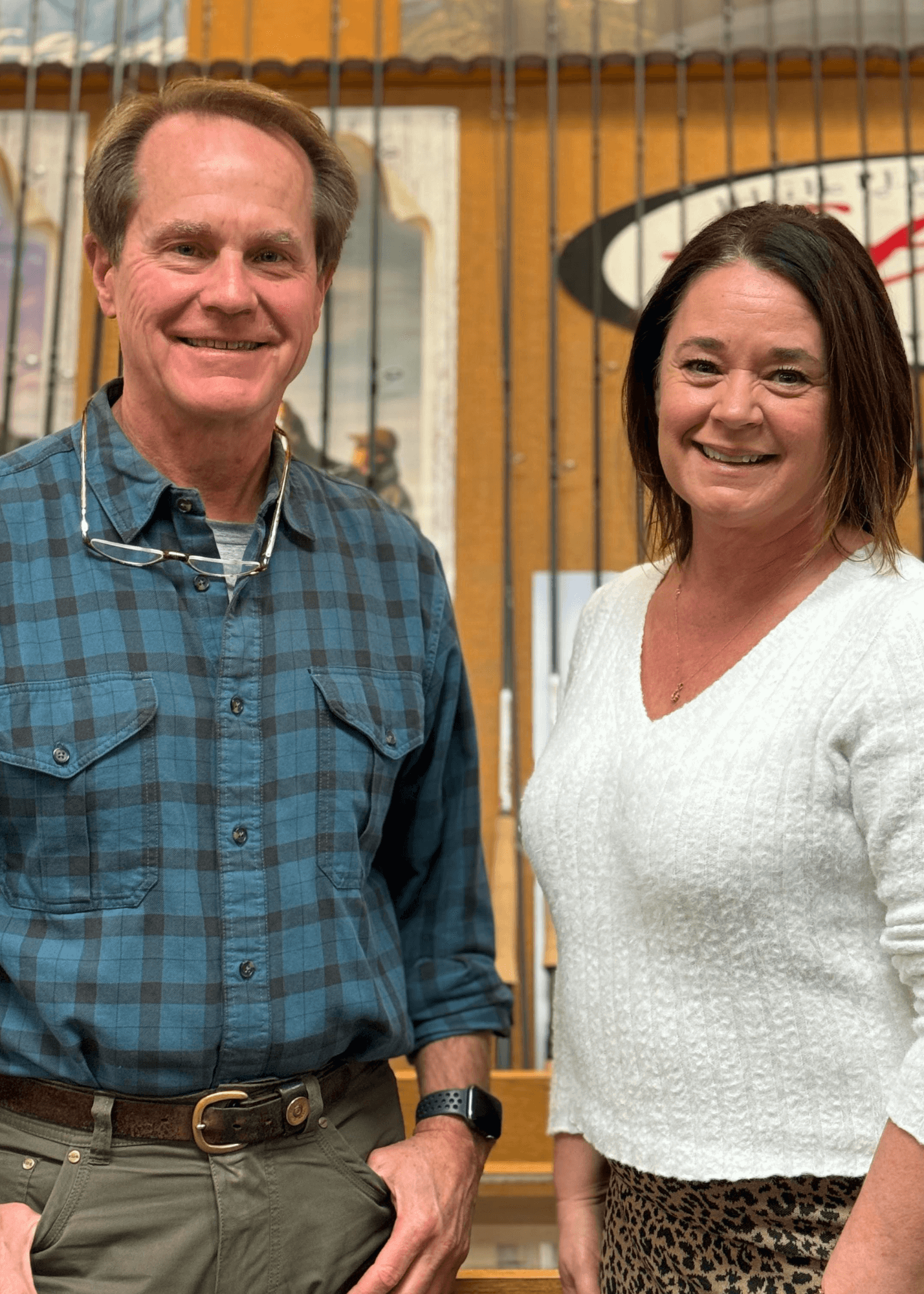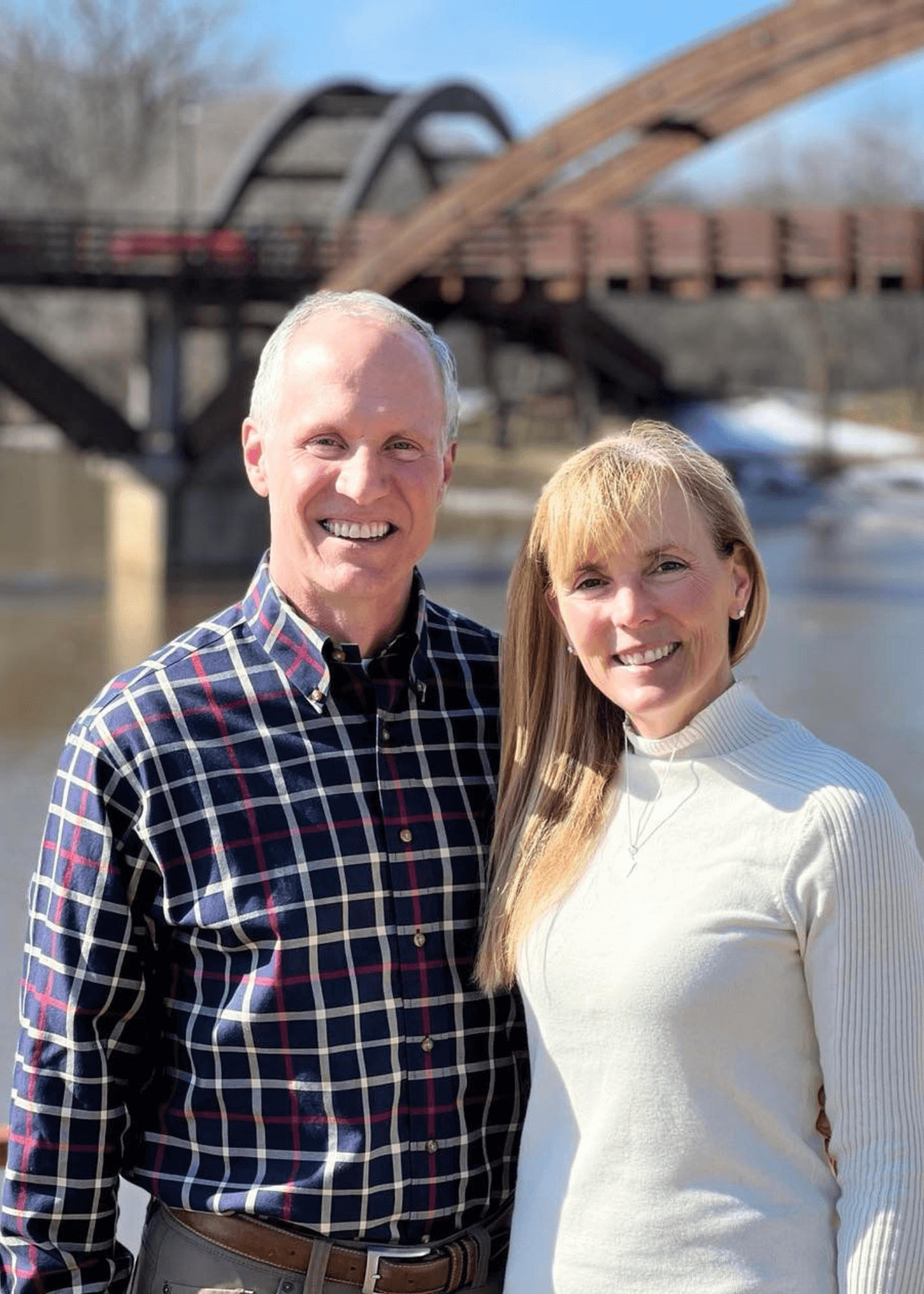Midland County Violence Prevention Partnership was formed in 2000 as an initiative to work collaboratively to educate students to prevent harmful activities in our community. In the years since, the group has undergone many transitions and transformations until it evolved into its current form, the Midland Area Youth Impact Partnership. It exists to provide education on bullying and its damaging effects, encourage students to be actively kind to others, and offer alternatives to violent and harmful activities for youth in the Midland area.
I love that I get to engage in meaningful discussions while sipping hot cocoa with two influential advocates who are leading the charge in nurturing the next generation of compassionate and emotionally resilient leaders through the Midland Area Youth Impact Partnership. As we cozy up for our delightful hot cocoa and conversation, I request Jennifer and Jackie to introduce themselves to our readers, and they graciously oblige.
Here’s a glimpse of our engaging exchange:
Jennifer:
Hey there! I’m Jennifer Holcomb-Brown, currently working as a counselor at Bullock Creek High School. This is my 25th year in the field! Fun fact: I graduated from Bullock Creek, so this community has been my entire life.
My first interaction with the Foundation was awesome. I was fortunate enough to receive a scholarship during my senior year of High School. Later on, I had the opportunity to coordinate the Midland County Youth Action Council for six years. But juggling that with being a counselor and a new mom was quite a challenge!
So, when the job at Bullock Creek opened up, it was a perfect fit for me. I’ve been there ever since, absolutely loving every minute of it! When the Midland County Impact Partnership was established, I was invited to be a part of that committee and task force to work collaboratively to educate students to prevent harmful activities in our community.
It’s been quite a journey, and I’m grateful to be a part of this fantastic community. I can’t wait to see what the future holds!
Jackie:
Hello, I’m Jackie Warner, a Youth Intervention Specialist with over 31 years of experience in the mental health community. Initially, I worked with adults dealing with mental illness and later provided home-based services to families and youth. But in 2010, I shifted gears and became a Youth Intervention Specialist. I’ve been closely involved with the Youth Impact group ever since, and it’s been quite a rewarding experience!
Renee’:
Thank you both for sitting down with me; I love the heart behind this organization, and your work for our community is inspiring.
Can you share with us what the Midland Area Youth Violence Prevention Partnership is and how it became what it is today?
Jackie:
The Midland Area Youth Violence Prevention Partnership implemented a range of activities to address bullying and promote positive attitudes. This has included national speakers visiting schools, theater performances discouraging bullying, evening presentations for parents and the community, and training for law enforcement and school personnel. The initiative also involved the establishment of SAVE Chapters in middle and high schools, with the committee comprising police officers, school counselors, teachers, principals, and nonprofit organizations. In subsequent years, student conferences on bullying and book-reading projects were introduced to engage students further.
Jennifer:
I worked at West Midland Family Center before counseling, and I was a youth and teen program coordinator. And I remember multiple times that the bathrooms had been tagged with gang signs… I don’t know that we had gangs, but we had to be aware they were nearby. Yeah, maybe [a kid’s] uncle was in a gang, and so the person’s emulating what they might have done if they were in a gang. We didn’t have gangs in Midland, but I think we had activities we were concerned about. We were just trying to keep it from gaining any foothold.
Jackie:
By providing a positive alternative for community and belonging with all of these initiatives within the schools, we have circumvented potential issues. By asking what we can do, what are some activities that can impact being kind to others, what can affect stopping violence, and our ripple effect in how we talk with others and treat others. . . it helped us realize our role was to think of some of these activities that we could do in the schools and get that to as many people as possible.
Jennifer:
Before that, we were bringing national speakers in and doing one-day assemblies. They were going to all the buildings, but we have since learned that those one-day [presentations] don’t have a long-lasting impact. But I remember we had somebody coming in from Columbine; we had a dad whose son had died from suicide and was bullied, and those were compelling stories. It was tough to hear, and everybody’s heartstrings were tugged, but we were grateful for their willingness and vulnerability in sharing with us!
Jennifer:
One speaker named Reggie Dabbs really lit a fire and excitement with his energetic chants, “Ain’t no party like a drug-free party…” It was awesome and energizing, but it was also short-lasting. So that’s when we began looking for more sustainable programming year-round. We started by using books and a storytelling approach to teach concepts like restorative justice.
Jackie:
Yes, we were initially talking about gangs and bullying, and then it hit us: why not shift the focus to kindness instead? We understood that to make this work long-term, ideas needed to come from the students themselves. Leadership Day was born out of this. We gathered all the students, got some speakers, and organized these breakout sessions, all centered around topics that could really make a difference in their school. We even gave them time to plan their activities for the Week of Nonviolence. It was incredible to see around 180 students, teachers, and faculty in their own buildings, exchanging ideas and just getting inspired by what others were doing.
Jennifer:
It’s just amazing how many creative ideas the middle schoolers and maybe fifth graders come up with every year. The Midland Area Community Foundation provides schools with the resources to organize these Weeks of Kindness, so it’s not a burden on the districts to pay for this programming.
Renee:
Can you give me an example of some acts of kindness they do?
Jennifer:
Yes, I have seen schools kick off the week with hot cocoa and doughnuts in the morning and go all out with a balloon arch, crazy fun music, and even sidewalk chalk! It’s one of my favorite things they do, having them come in, greet everyone, and make people feel welcome… it’s just the best.
Renee’:
That’s awesome.
One of the questions I was thinking of when you’re talking about just, are there challenges today that you’re experiencing that are different because of COVID?
Jackie:
I would say, for me, personally, I think one of the things we saw increase is negative self-talk; in the beginning, we saw more bullying, but we’ve covered that because we saw kids being super mean to each other, saying things like, “You’re worse than that trash can. You should kill yourself,” you know, things like that, that are just awful. But now we’re seeing kids that have such negative self-talk. They’re so anxious, and they don’t go to activities. They don’t participate. They don’t want to go to school, and they don’t get involved.
Renee:
Isolation is what made that even worse, right?
Jennifer:
COVID has changed our students’ resiliency. We all struggle with anxiety, but some kids just haven’t learned the coping skills yet and don’t know how to get through hard things. So, teaching resiliency is even more important right now.
Our progress has been a result of continuously evolving and adapting to various challenges. We constantly adjust our approach as needed, embracing change and progression along the way.
Renee:
Remember the big word of COVID’s season’, “pivot”? Sounds like you’re doing that. You’re staying very flexible to the changing needs.
Jackie:
That’s a good way to put it.
Jennifer:
Yes, this group has been very adaptable; they’ve been open to change, even their name, multiple times. I am proud to witness how the committee has evolved over the years, responding to the needs in front of them. It has grown, too; in the beginning, it was just resource officers and police officers, and now it has expanded to include school administrators, counselors, and a large committee representing various organizations within the community, schools, and nonprofits.
Renee’:
As I listen, I can hear the enthusiasm you both have for the ways this has grown and the creative methods you have used to teach. Through the power of storytelling and experiential learning, this programming is able to effectively demonstrate lessons on empathy, the power of our words, the ripple effect, personal safety, resiliency, and how to respond to peer pressure. At each grade level, they emphasize new skill sets that build on each other.
Both Jackie and Jennifer agreed that a program they have done in the Leadership programming called Cross the Line is especially impactful. I asked Jackie to share details of this:
Jackie:
So, they put this piece of tape on the floor, and we all stood on one side. There were about a hundred kids and around 30 community volunteers to show us we were making a difference. Then they asked, “Cross the line if you’ve ever been hit or slapped by someone you love.” It was intense seeing who crossed the line, and then everyone showed support by offering the sign for love. Next, they said, “All right, come on back. Cross the line if you’ve had a parent who’s been incarcerated and several other questions like this.” Let me tell you, seeing those students cross the line got us all emotional.
Jennifer:
It was lots and lots of tears, smiles, hugs. It definitely moves you out of your comfort zone. Yes, even as adults.
Renee’:
Well, you get to experience your shared humanity and struggles; it makes us see each other as humans instead of just like another person. What other topics have you discussed?
Jennifer:
We have covered a wide range of important topics in our teachings, including gang issues, school violence, suicide, anxiety, depression, self-harm, —cyber safety, mindfulness, LGBTQ+ issues, fostering healthy relationships, and spreading kindness.
Renee:
Your work is so important, and I am curious about your personal why. What excites and inspires you to keep making a difference through this endeavor?
Jackie:
What really gets me going is our impact on everything we do. We’re talking about impacting so many different kinds of people here. And when we show empathy and teach our kids to be kind, it makes our community a better place to live, don’t you think?
Schools are where we can really make a difference in so many kids’ lives all at once. And when we plan these activities, we have the opportunity to influence hundreds of kids and their families. Maybe even more, who knows? Teaching empathy is our way of making this world a better place.
When we get 180 kids fired up and ready to tackle important topics and do activities in their school and carry that excitement back with them, I know we are making a lasting impact.
My relationship with God inspires me, too. I keep working on promoting kindness after hearing from many youth through the years how mean kids are to each other. Many times youth become depressed or suicidal when mean things are said. I strive to help make a community where everyone feels safe and accepted.
Renee:
Yes, I am sure it is so encouraging when you can see the fruit of all your hard work. How about your Jennifer? Where do you find inspiration?
Jennifer:
My favorite quote is, “Do small things with great love.” ~ Mother Teresa
I love the pride I see when our students are so involved in giving back. I think that’s what keeps the fire going for me. I believe that, like fresh out of college, I was working at West Midland Family Center, and there was a challenging situation there with those kiddos and the things they were doing. I wanted to create a way of giving back, so I started Teens in Training, which was a training be a counselor for summer camp. That really just kept me going. I was able to help them be leaders, and sometimes they didn’t have the best family situation, and they were dealing with a lot. Being able to help them experience something positive. . . That’s what kept me going. Volunteerism is super important in my life.
People who give of their time and talent fill my heart. Midland is a generous community with so many people who give and give without expecting reciprocity. This spirit is behind the Bullock Creek Club Creekers for a Cause. I am the advisor for this philanthropic and volunteer club.
Renee:
What are you hopeful for in this next generation and for Midland as a community? We are witnessing so many positive changes, and it fills me with hope. So, I’m curious: is there something specific that fuels your optimism and excitement?
Jennifer:
The thing that popped into my head is how amazing it is when people genuinely give from the heart, wanting to make things better. That’s what I hope for the next generation—to recognize the value of volunteering, giving back, and making a positive impact. I love the direction we’re taking with community involvement, like Neighboring Week, Random Acts of Kindness Week, an Absolutely Incredible Kid Day. These initiatives shouldn’t be just one-time events but rather a part of our community’s fabric. Let’s keep it going!
Jackie:
I hope the next generation can learn to be as kind to themselves as they are to others. We are often hard on ourselves and negative, but changing our self-talk to be more realistic can lead to positivity, and affecting how we treat others. It’s important to filter our thoughts through kindness and respect.
Our community still has room to grow, but I love the opportunities it offers, from pickleball to Miracle fields, youth activities, and scholarships for those in need. It’s a great place to be. Let’s continue working towards a better future together.
Renee:
You both have dedicated so much of your hearts to significant and influential programs that are truly making a significant impact in our communities. I commend you for your remarkable achievements. As Thanksgiving approaches, it warms my heart to hear about how your programs also cultivate a sense of gratitude. Gratefulness is a powerful emotion that inspires us to contribute to the betterment of our communities. Thank you for taking the time to passionately share with us why this work means so much to you.
Together, forward, bold we go…. #50Storiesfor50Years





